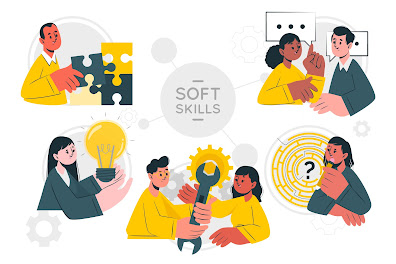5 Essential Things to Know Before Pursuing the Level 3 Certificate in Assessing Vocational Achievement
Introduction
Are you considering a career in vocational education and training? Do you aspire to become a qualified assessor capable of evaluating learners' competence in their chosen field? If so, then you may be contemplating taking the Level 3 Certificate in Assessing Vocational Achievement (CAVA). This qualification is designed for individuals who wish to assess vocational competence in a variety of environments, including the workplace and training centres. However, before embarking on this journey, there are several crucial aspects you should be aware of to ensure success and make informed decisions. In this blog post, we'll explore the top five things you should know before enrolling in the CAVA course.
1. Understanding the Purpose and Scope of the Qualification:
The Level 3 Certificate in Assessing Vocational Achievement is a nationally recognized qualification in the UK, regulated by awarding bodies such as City & Guilds and Pearson. Its primary objective is to equip individuals with the knowledge, skills, and understanding required to assess vocational competence effectively. This includes assessing learners' performance in real work environments, observing practical activities, and evaluating evidence against established criteria.
It's essential to understand that the CAVA qualification is not limited to a specific industry or sector. Instead, it applies to a wide range of vocational areas, including hospitality, construction, healthcare, hairdressing, and more. As an assessor, you'll be responsible for ensuring that learners meet the required standards of competence in their chosen profession, providing valuable feedback and guidance along the way.
2. Prerequisites and Entry Requirements:
Before enrolling in the Level 3 Certificate in Assessing Vocational Achievement, it's crucial to check the prerequisites and entry requirements set by the awarding body or training provider. Typically, candidates are expected to have relevant vocational experience in the area they wish to assess. Additionally, they should possess a good level of literacy, numeracy, and communication skills, as assessing involves interpreting assessment criteria, providing feedback, and communicating effectively with learners and stakeholders.
Some awarding bodies may also require candidates to hold a relevant assessor qualification, such as the Level 3 Award in Understanding the Principles and Practices of Assessment. However, this requirement may vary, so it's essential to verify the specific prerequisites before applying for the course.
3. Learning and Assessment Methods:
The Level 3 Certificate in Assessing Vocational Achievement is delivered through a combination of theoretical learning and practical assessment activities. Depending on the training provider, you may have the option to attend classroom-based sessions, participate in online learning modules, or engage in work-based learning activities. The course typically covers topics such as the principles and practices of assessment, assessing occupational competence in the workplace, and quality assurance processes.
Assessment methods for the CAVA qualification may include written assignments, practical assessments, professional discussions, and observations of your assessing practice. You'll be required to compile a portfolio of evidence demonstrating your competence as an assessor, which will be assessed against the qualification criteria. It's essential to familiarize yourself with the assessment requirements and deadlines to effectively manage your workload and achieve success in the course.
4. Career Prospects and Opportunities:
Earning the Level 3 CAVA can open up a range of career prospects and opportunities within the education and training sector. Qualified assessors are in high demand across various industries, including further education colleges, private training providers, apprenticeship programs, and workplace training schemes.
As a certified assessor, you may pursue roles such as vocational assessor, workplace trainer, internal verifier, or quality assurance coordinator. Additionally, obtaining the CAVA qualification can enhance your employability and credibility within the field, enabling you to advance your career and pursue further professional development opportunities.
5. Commitment and Dedication Required:
Finally, it's essential to recognize that achieving the Level 3 Certificate in Assessing Vocational Achievement requires a significant level of commitment and dedication. Assessing vocational competence is a responsible role that requires attention to detail, impartiality, and adherence to assessment principles and guidelines. As such, you'll need to invest time and effort into your studies, engage actively in learning activities, and demonstrate competence in your assessing practice.
Moreover, maintaining professionalism and upholding ethical standards are integral aspects of the assessor's role. You'll be responsible for ensuring fairness, consistency, and reliability in your assessment decisions, treating all learners with respect and dignity throughout the process.
Conclusion
In conclusion, pursuing the L3 CAVA can be a rewarding and fulfilling journey for individuals passionate about vocational education and training. By understanding the purpose and scope of the qualification, meeting the entry requirements, embracing diverse learning methods, exploring career prospects, and demonstrating a commitment to excellence, you can embark on a successful career as a qualified vocational assessor. So, if you're ready to take the next step towards becoming a certified assessor, seize the opportunity and embark on this enriching educational adventure today!

.jpg)


Comments
Post a Comment